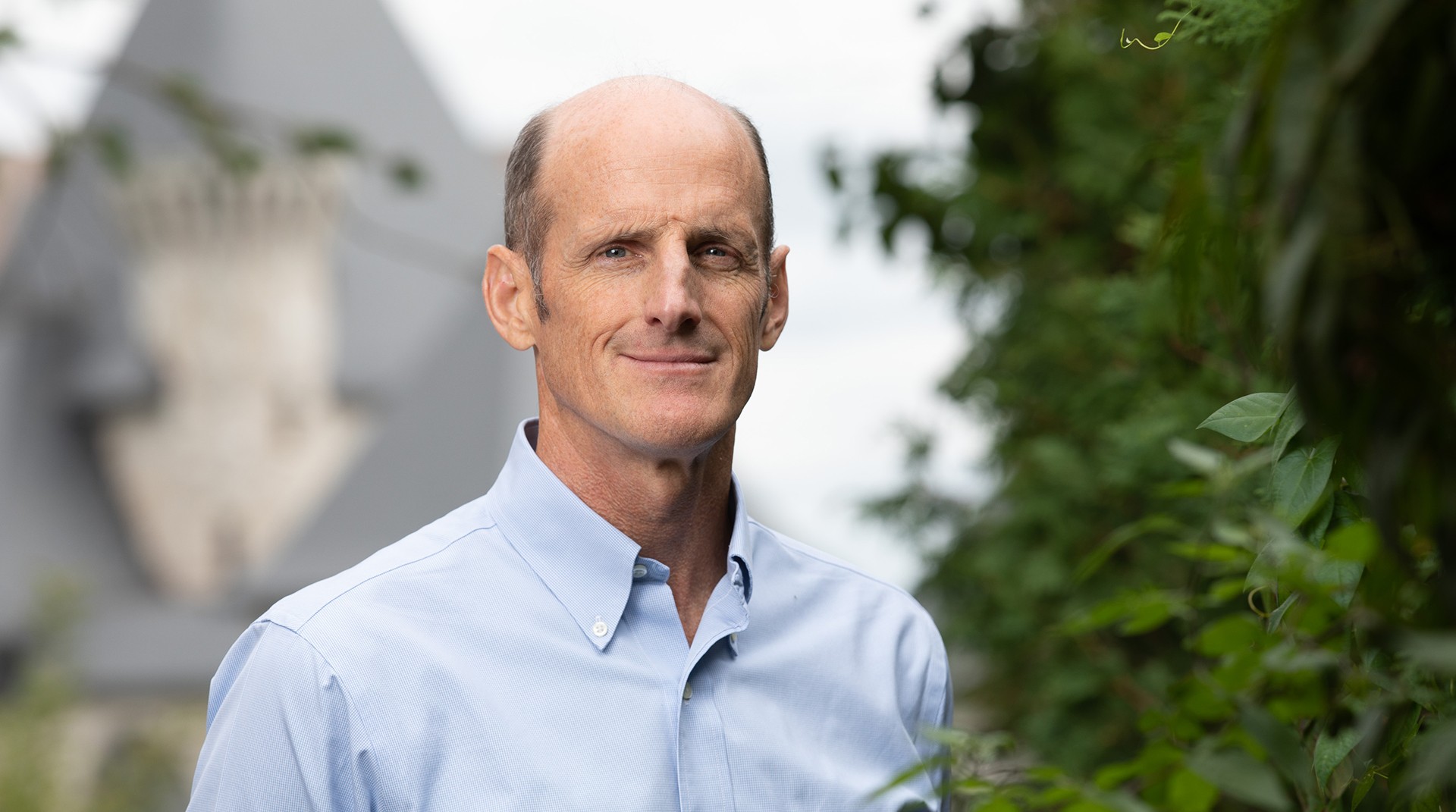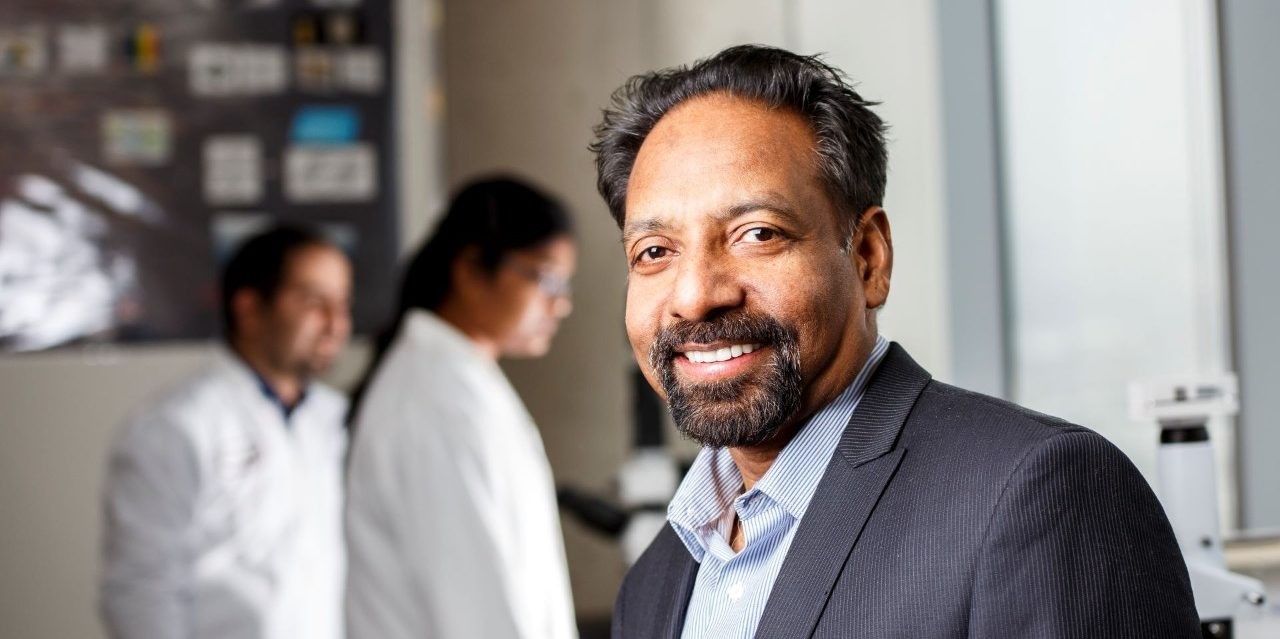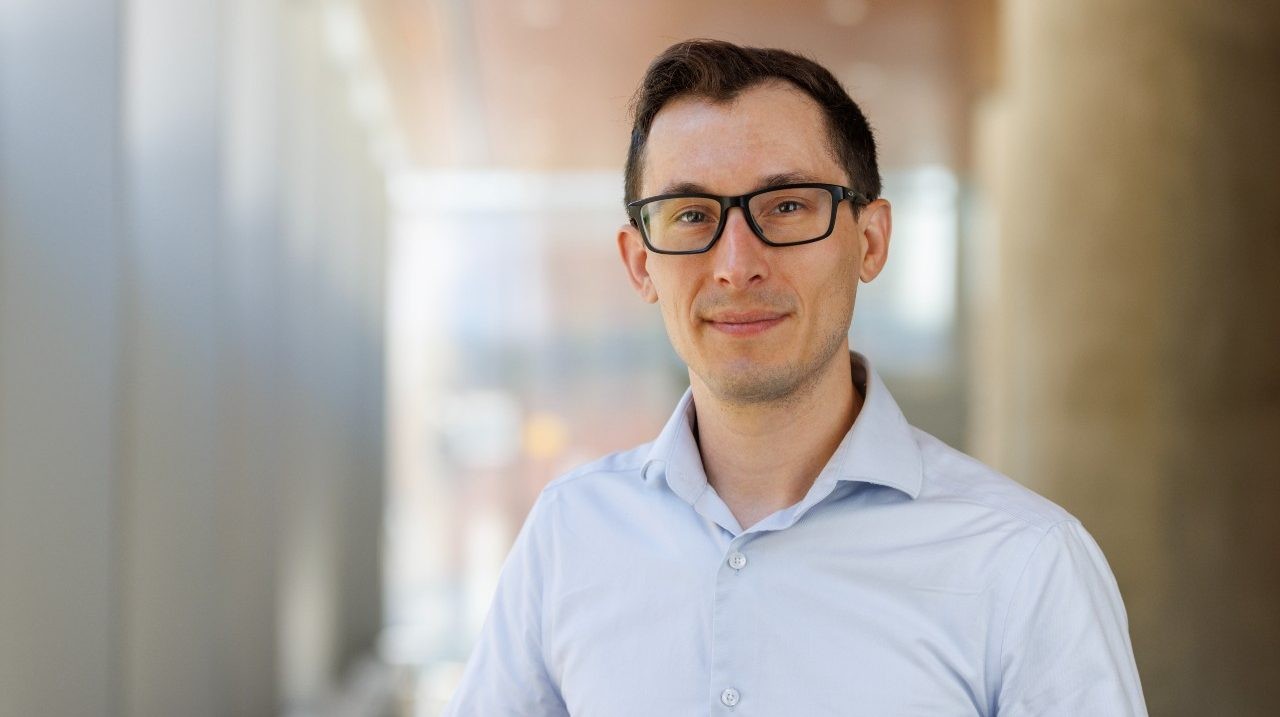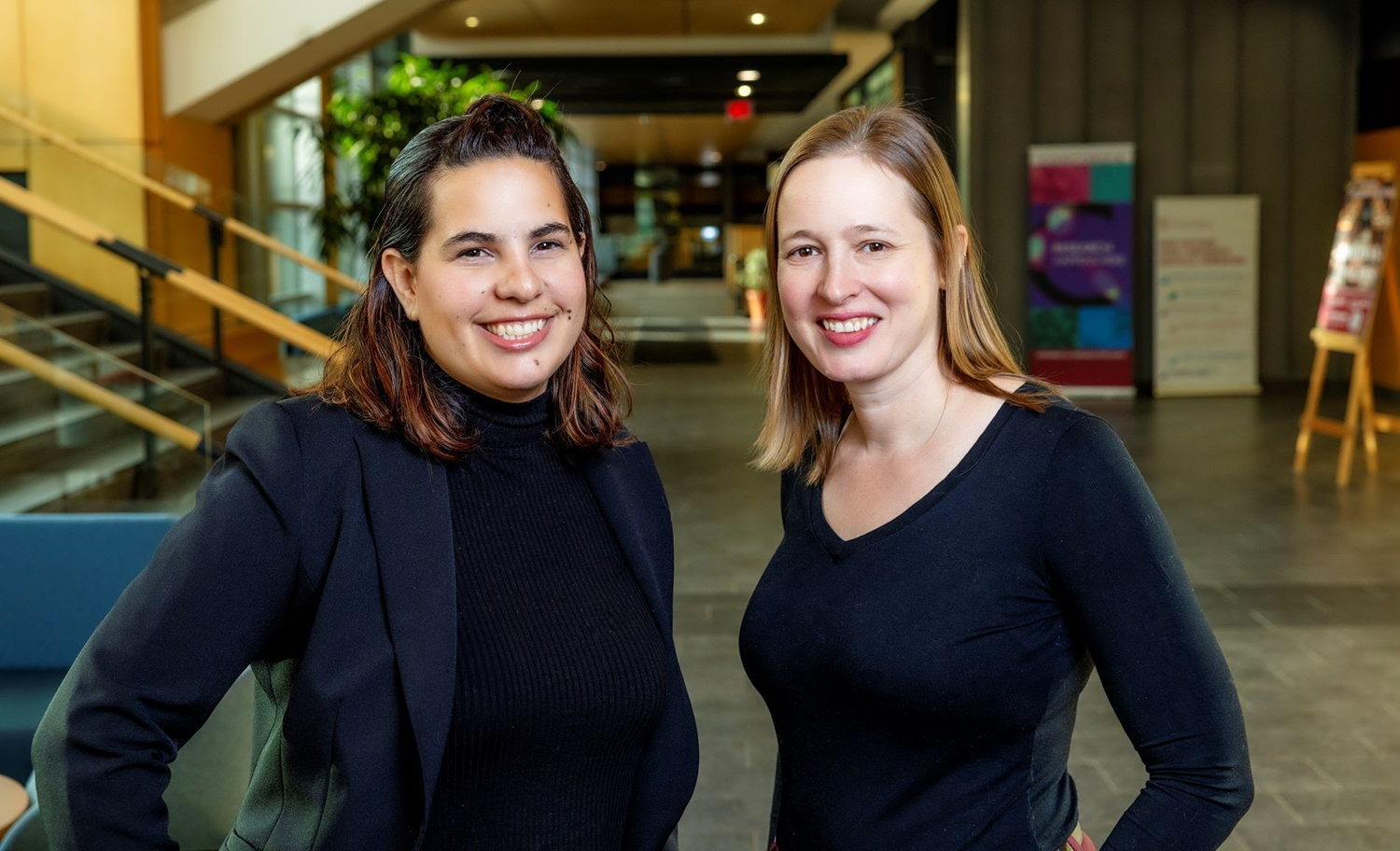Next-Gen discovery & innovation
Inspiring bold ideas
Discovery highlights
Concordia becomes Ericsson’s first Tier 1 university partner in North America
Ericsson has named Concordia its first Tier 1 university partner in North America — the highest level an academic institution can achieve with the company. Based in Concordia’s Gina Cody School of Engineering and Computer Science, the partnership will include joint research, patent development and customized training programs in cybersecurity, applied artificial intelligence, cloud computing, 5G and more.
“Our collaboration with Ericsson highlights our commitment to fostering meaningful partnerships that drive both educational and technological progress,” says Concordia President Graham Carr. “We are excited and eager to continue working together to push the boundaries of what is possible in this era of cloud computing.”
Concordia and Ericsson have long collaborated on research and development tackling key challenges in communications and technology, particularly in the areas of cybersecurity and applied AI.
“Expanding our partnership with Concordia will drive innovation in Canada’s information and communication technology space,” says Jeanette Irekvist, president of Ericsson Canada. “Our long-standing relationship has resulted in numerous successes, providing Ericsson with top talent and paving the way for an incredible foundation of innovation in the latest technologies.”
Concordia names Tim Evans vice-president of Research, Innovation and Impact
Concordia has appointed Tim Evans as its new vice-president of Research, Innovation and Impact. The world-renowned scientist, educator, entrepreneur and research and policy leader in the field of global health began his five-year term on January 6, 2025.
Throughout his career, Evans has pioneered global partnerships to address health inequities in childhood vaccination, disease surveillance, maternal and child health, the primary-care workforce, pandemic financing and access to life-saving drugs for HIV. He has championed the need for continued investments in expanding global knowledge in universal health equity, health-systems research, social determinants of health and health entrepreneurship.
Evans previously served at McGill University as inaugural director of the McGill School of Population and Global Health; associate dean of Population and Global Health in the Faculty of Medicine and Health Sciences; and as associate vice-president of Global Policy and Innovation. In 2020, the Government of Canada appointed him executive director of the COVID-19 Immunity Task Force.
“Today’s most-pressing issues — climate change, disruptive technologies like artificial intelligence, preparing for the next pandemic — are international and interdisciplinary in scope and demand unprecedented ingenuity,” says Evans. “Universities have a critical role to play in forging new knowledge frontiers and training the next generation of leaders to bridge the ingenuity gap.”
 Tim Evans, vice-president of Research, Innovation and Impact
Tim Evans, vice-president of Research, Innovation and Impact
Top research ranking in Canada and growth in Quebec
Concordia has secured its highest-ever ranking in the 2024 Canada’s Top 50 Research Universities, placing first in the province of Quebec and fifth nationwide. The university’s sponsored research income reached $129.1 million, reflecting a 47.6 per cent year-over-year increase, and nearly triple its 2014 recorded total of $43.9 million.
President Graham Carr attributes the success to the “excellence, creativity and determination of our researchers.” With a strategic focus on interdisciplinary collaborations and continued support for emerging fields, Concordia’s progress reflects its commitment to impactful, real-world innovation.
The future of 3D printing
Concordia researchers have developed holographic direct sound printing (HDSP), a 3D-printing technique that uses acoustic holograms to create complex objects up to 20 times faster — and with less energy — than previous methods.
Led by Muthukumaran Packirisamy, professor in the Department of Mechanical, Industrial and Aerospace Engineering, the technology uses microscopic bubbles to create extremely high heat and pressure to harden resin into elaborate patterns. Potential applications include the creation of complex tissue structures, localized drug and cell delivery systems, and advanced tissue engineering.
 Muthukumaran Packirisamy, professor in the Department of Mechanical, Industrial and Aerospace Engineering
Muthukumaran Packirisamy, professor in the Department of Mechanical, Industrial and Aerospace Engineering
Using AI to predict the future cost of rent
Concordia and private equity firm Equiton have leveraged AI to forecast rental costs across Canada. Led by Erkan Yönder, associate professor of finance and real estate at the John Molson School of Business, the study predicts that the monthly cost of a two-bedroom rental will reach $4,325 in Montreal, $5,600 in Toronto and $7,750 in Vancouver by 2032.
The study analyzed data from 427 census subdivisions, incorporating information from the Canada Mortgage and Housing Corporation, Statistics Canada, and federal immigration and population projections. The AI model provides insights into rental price determinants for specific demographics, underscoring the need to address Canada’s housing supply shortage.
 Credit: Michael Beener
Credit: Michael Beener
Canada Foundation for Innovation invests more than $5.5M in Concordia
Two Concordia research projects have secured more than $5.5 million in funding from the Canada Foundation for Innovation (CFI).
Christian Moreau and Pantcho Stoyanov, professors at the Gina Cody School, received $3.5 million to develop cutting-edge coatings to enable materials to better withstand extreme environmental conditions in the transportation, aerospace, manufacturing and energy sectors.
Biology professor Vincent Martin secured $2 million to upgrade equipment and resources in Concordia’s Genome Foundry and Bioprocessing Centre. The funds will be used to acquire robotics for genome engineering and phenotyping, and small- and large-scale fermentation equipment.
Uncertainty plays key role in work injury and mental health
A meta-analysis co-authored by Steve Granger, assistant professor of Management at the John Molson School of Business, and the Nick Turner of the University of Calgary, explores the link between workplace injuries and mental health. The study reveals that work-related injuries are more likely to precede mental-health challenges than the reverse.
The researchers highlight how job uncertainty can exacerbate mental health post-injury. They advocate for rehabilitation programs that address physical and psychological recovery, emphasizing that dignity, fair treatment and adequate post-injury support are critical to reintegration into the workforce.
 Steve Granger, assistant professor of Management at the John Molson School of Business
Steve Granger, assistant professor of Management at the John Molson School of Business
Mothers’ language choices double the impact in bilingual families
A Concordia study of 300 bilingual Montreal households challenges the traditional one-parent-one-language (OPOL) approach, showing that most parents use both languages with their children.
Andrea Sander-Montant, a PhD student at the Concordia Infant Research Lab, additionally found that mothers’ language choices have twice the impact on children’s language exposure compared to fathers.
The study identified four main strategies: OPOL, both parents using both languages, and two mixed approaches. “There was little association between the strategies used and how much the children were hearing of either language,” explains Krista Byers-Heinlein, supervising author and professor in the Department of Psychology.
The findings can have real-world impact for policymakers, healthcare workers and professionals who closely work with and give advice to bilingual families.
 PhD candidate Andrea Sander-Montant (left) and Krista Byers-Heinlein, professor in the Department Psychology
PhD candidate Andrea Sander-Montant (left) and Krista Byers-Heinlein, professor in the Department Psychology
What influences young people to swap clothes on a large scale?
Young people are reshaping fashion consumption, according to a study by Farah Armouch as part of her John Molson School master’s thesis.
The study examines motivations behind clothing-swapping among 18- to 35-year-olds across cultures, identifying economic, environmental, hedonic and activist motives. Armouch found that clothing swaps extend garment lifestyles, foster community building and offer economic advantages. She also observed cultural influences on sustainable fashion and suggests tailoring swap initiatives to specific cultural contexts for greater impact.
 Farah Armouch, John Molson School of Business master’s student
Farah Armouch, John Molson School of Business master’s student

